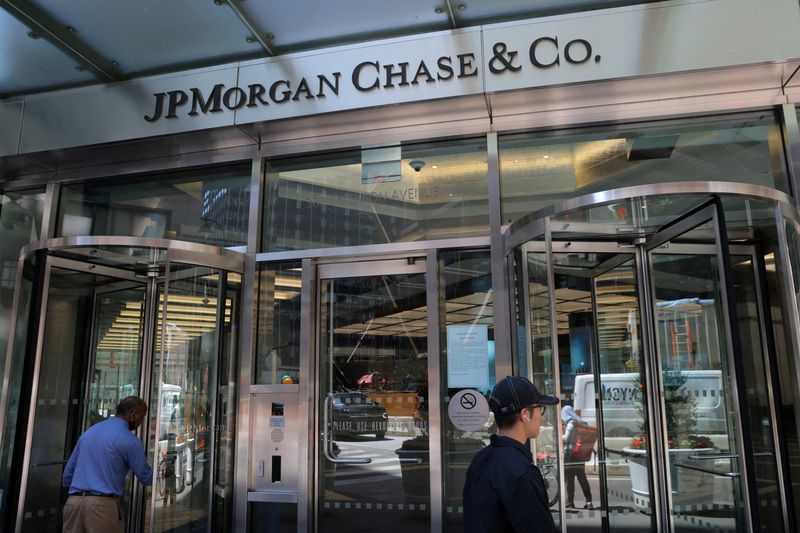By Jody Godoy
(Reuters) -The closely watched criminal trial of three former JPMorgan Chase & Co (NYSE:JPM) employees kicked off on Friday, with a prosecutor saying they "ripped off" the precious metals futures market with fake orders and defense attorneys saying the orders were genuine.
The bank's former global precious metals desk head Michael Nowak, precious metals trader Gregg Smith and salesperson Jeffrey Ruffo are charged with racketeering and conspiracy in the U.S. Justice Department's most aggressive case to date targeting the manipulative trading tactic known as spoofing.
Spoofing involves placing fake sell or buy orders and then canceling them with the goal of moving the price.
Prosecutor Lucy Jennings told jurors that each played a role in the scheme, which involved creating phantom supply or demand by placing buy or sell orders they never intended to fill, and then profiting from trades in the other direction.
"Either way, somebody got ripped off," she said.
There is no doubt that orders were placed and then canceled, said Jonathan Cogan, an attorney for Smith.
"But they are wrong about what was in his mind when he did it," he said, referring to prosecutors.
Smith and Nowak were completely willing for their orders to be filled, and the government cannot show they intended to cancel the orders from the outset, their attorneys said.
Ruffo was not a trader, and there is no evidence that he understood the traders he worked with were using illicit tactics, said his attorney Guy Petrillo.
The three men are accused of using the tactic to manipulate futures on metals such as gold, silver, platinum and palladium between 2008 and 2016.
Spoofing was outlawed in 2010 when Congress passed the Dodd-Frank Act after the financial crisis. Since then, prosecutors have argued that earlier instances constituted fraud.
The racketeering statute, a federal law enacted in 1970 to take down the Mafia, is rarely used to prosecute corporate crime. It allows prosecutors to charge a group of individuals, including those indirectly involved in alleged wrongdoing, on the basis they participated in a "criminal enterprise."
Better Markets, a Washington nonprofit that advocates for stronger financial regulation, called the case a "potential gamechanger" because the racketeering statute would allow prosecutors to seek harsh sentences if the defendants are convicted.
In addition to racketeering and conspiracy, Nowak faces 13 other charges, including fraud, spoofing and attempted market manipulation, and Smith faces 11 additional charges.
Christopher Jordan, a trader who left JPMorgan in 2009, has also been charged and will be tried separately.
The trial is expected to take around five weeks. Prosecutors are expected to call three former traders as cooperating witnesses, all of whom have separately pleaded guilty to related charges. Alleged victims of the scheme may also take the stand, according to court papers.
Commodities manipulation and in particular spoofing have become a major focus of the Justice Department, which has brought several other cases in recent years, including against NatWest and former traders at Deutsche Bank (ETR:DBKGn) and UBS.

JPMorgan also agreed in 2020 to pay more than $920 million and admitted to wrongdoing to settle with the Justice Department and the Commodity Futures Trading Commission over the conduct of the traders who have pleaded guilty or are facing trial.
The trial is scheduled to resume on Monday.